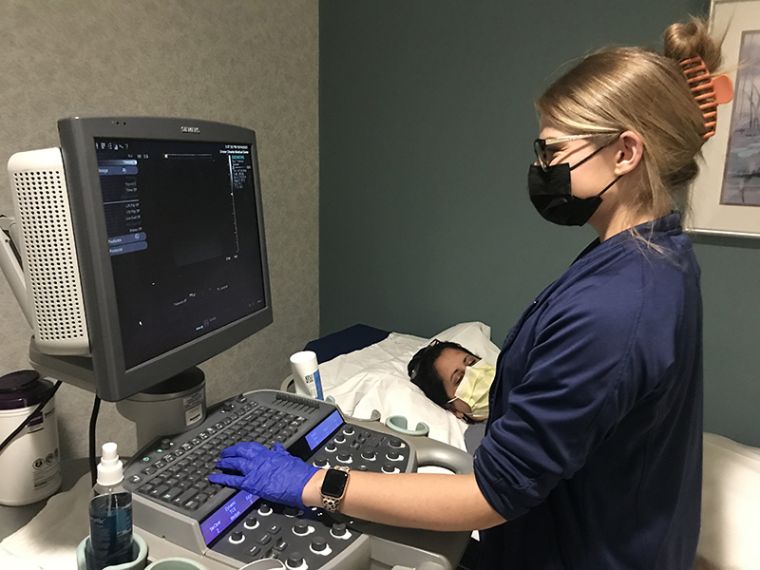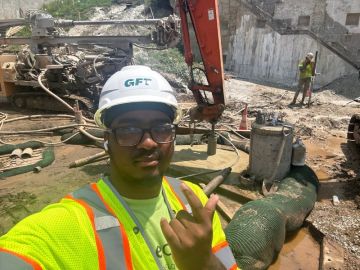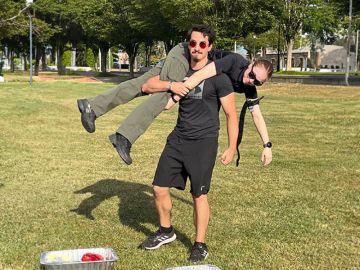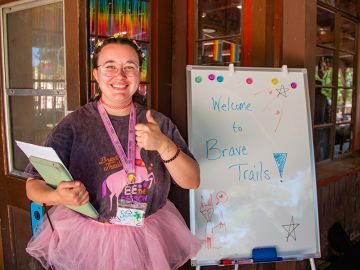For Aspiring Medical Sonographer, Image is Everything
Danielle Laskowski ’22 is well on her way to a successful and rewarding career in diagnostic medical sonography.

- Center for Continuing Studies
Danielle Laskowski knows how nervous a patient can be when they come in for a sonogram.
Perhaps it’s a pregnant woman awaiting news about the health of her fetus, or someone needing a breast cancer screening, or a further look at a possible pathogen.
As the person running the scans and ultrasound equipment, Danielle works hard to “put them at ease regardless of the diagnosis. I want to help people as much as I can.”
Danielle is training to be a sonographer through Widener’s diagnostic medical sonography (DMS) program.
Already, through her clinical experiences, Danielle has found crucial evidence that has helped doctors diagnose liver cancer and prepare treatment plans.
“You are the eyes of the radiologist,” she said.
Danielle is well on her way to a successful career, and credits the program with giving her the knowledge and experience to reach her goal.
This program gave me the protocol to follow and has taught me how to be a great ultrasound technician. This is the stepping stone to get me there. — Danielle Laskowski '22
Though she won’t complete the program until spring 2022, Danielle has already been offered a sonography tech aid position at Crozer.
As a child, Danielle needed X-rays and became fascinated with the technological side of the experience, and the interaction with the technologist who helped her. “They made me feel like I was OK,” said Danielle, who now hopes to replicate that feeling for others.
The DMS program requires students to record more than 1,600 clinical hours. Being in the metropolitan Philadelphia area means Danielle has had the opportunity to conduct her clinical rotations at world-class medical facilities. She has logged clinical hours throughout the Crozer system, as well as at Children’s Hospital of Philadelphia, Nemours/Alfred I. duPont Hospital for Children, Bryn Mawr Hospital, and other sites.
The hands-on experience has been invaluable. As Danielle says, most people think of just ultrasounds being used for neonatal tests, but patients of all walks of life need similar procedures. Through her clinical experience, she has probed everything from abdomens and veins looking for blood clots.
“I’ve had a chance to work with a lot of different age groups of patients, from older patients to children. And with children, you also have to learn how to deal with parents, the eyes behind you, who are asking questions,” she said.
Danielle calls the DMS program a “family.” With small class sizes, she has had the chance to get to know her fellow students and faculty members on a personal level. “And the instructors are amazing. They want to see you succeed and help any way they can.”



